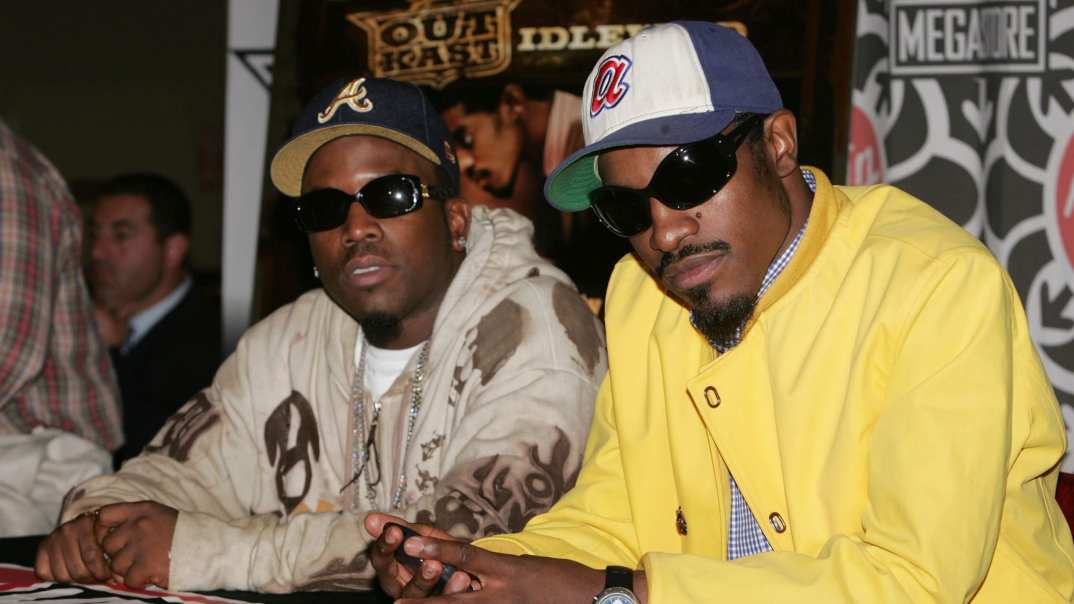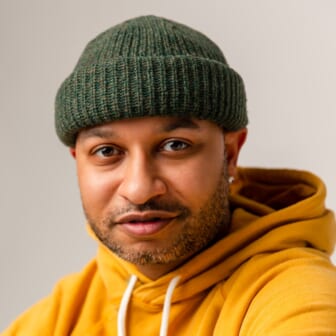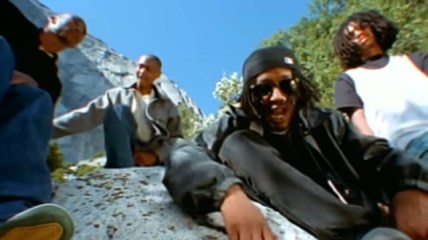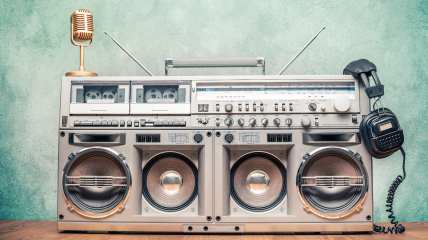93 ‘Til Infinity: How Outkast changed my life with ‘Player’s Ball’
OPINION: The first single from Outkast, the legendary duo of Big Boi and André 3000, was a game-changer for all of us in the Dirty South.

Editor’s note: The following article is an op-ed, and the views expressed are the author’s own. Read more opinions on theGrio.
To say that something changed our lives is often a bit of a reach. Usually, what we really mean is that something had a profound impact on our lives, which I think we can all agree isn’t quite the same thing. But every so often, something does come along that actually does have that life-changing effect. When it comes to music specifically, I can think of a few instances where I was truly changed by the music I heard. DJ Shadow’s “Endtroducing…..” album absolutely changed the way I heard music. The same with David Axelrod’s “The Edge (David Axelrod at Capitol Records 1966-1970).” When it comes to hip-hop, I still remember the first time I heard Dr. Dre’s “The Chronic” album and saw Queen Latifah’s “Ladies First” video. I was different after hearing (or seeing) them all, even at a young age, and I know this because I literally remember where I was when I encountered them all for the first time. That’s usually my marker for something affecting me down to the bone marrow; I can still remember exactly where I was.
Outkast’s “Player’s Ball” is another one of those moments. In fact, Outkast is responsible for a few of those moments. But let’s focus on “Player’s Ball.” Released on Nov. 19, 1993 — twice, actually; it was first released on “A LaFace Family Christmas” album and then officially as the first single from “Southernplayalisticadillacmuzik” — I remember seeing the video for the very first time on Rap City and feeling … seen, a description that is accurate, even if it seems a bit overimportant, but we’ll get to that. What is interesting about “Player’s Ball” is that I would have sworn the single came out months before since I associate so much of my freshman year of high school and moving back to America with the song. I spent a lot of time trying to find out exactly when the song first hit the airwaves in certain locales but couldn’t find anything earlier than November, so perhaps that just lends to its importance in my life.
Side note: Oddly, the video with the original version of “Player’s Ball” doesn’t seem to be available, just the version with the absolutely amazing remix. I cannot find it to save my life. That’s curious.
So let’s go to the “seen” part. I was introduced to Atlanta when I was 7 years old. In October 1985, when I was 6, I moved from Ann Arbor, Mich., to Frankfurt, Germany, to live with my father and soon-to-be stepmother, who was from Atlanta. That next summer and every summer thereafter until we moved back to America in the summer of 1993, I spent some part of summer break on the west side of Atlanta. My grandmother’s church was in East Point, actually on Headland Drive, a few blocks away from the legendary “Headland and Delowe” that André 3000 references on “Elevators (Me & U)” on 1996’s “ATLiens” album. So many of the landmarks in the video from “Player’s Ball” were places I’d seen or driven by because rides with my family were all spent between Greenbriar Mall on Campbellton Road and our house on Martin Luther King Jr. Blvd. on the west side of Atlanta. But more importantly, the video LOOKED like home for me. By the time the video came out in November 1993, I’d been living in Madison, Ala., for three months and it definitely wasn’t home. Since I was a kid, Atlanta has more or less always been our home base as a family. So there was something that I saw in Big Boi and Dre that reminded me of home.
This is important, especially at this point when I’m 14 because I’m entirely engulfed in West Coast hip-hop culture. In fact, “Player’s Ball” drops on the heels of the aforementioned “The Chronic” but also a few days before Snoop Dogg’s (or at the time Snoop Doggy Dogg) “Doggystyle” album would literally take over the ENTIRE game. But “Player’s Ball” was something I couldn’t let go. I immediately bought the cassette single (which I still have, by the way) and listened to it until the tape popped and then bought another. I couldn’t get enough of Outkast’s “Player’s Ball,” because, again, it felt like home to me. And I saw some part of myself in it. It represented music for the people I knew.
Now the reason I said feeling “seen” seemed overimportant is because I don’t know if I had enough of a sense of a regional concern and identity in hip-hop to believe that “we” finally had a group that represented the South. For starters, I was already a fan of The Geto Boys and they were just fine, for me. But I’d never been to Houston and knew nothing about Texas. I’d also never been to Florida so nothing coming from there moved me like that either, at least not culturally as a 14-year-old. Something about Outkast felt different, though, and I felt it that day. And the next days at school, I talked with my hip-hop heads about Outkast, a group we all did acknowledge repped for us. Over time, of course, Outkast would become one of the most important hip-hop groups of all time with their creativity, innovation, cultural relevance and stickiness. I didn’t know what I was hearing in 1993, but I knew it was for me and about me.
And I wasn’t wrong.

Panama Jackson is a columnist at theGrio. He writes very Black things and drinks very brown liquors, and is pretty fly for a light guy. His biggest accomplishment to date coincides with his Blackest accomplishment to date in that he received a phone call from Oprah Winfrey after she read one of his pieces (biggest), but he didn’t answer the phone because the caller ID said: “Unknown” (Blackest).
Make sure you check out the Dear Culture podcast every Thursday on theGrio’s Black Podcast Network, where I’ll be hosting some of the Blackest conversations known to humankind. You might not leave the convo with an afro, but you’ll definitely be looking for your Afro Sheen! Listen to Dear Culture on TheGrio’s app; download it here.


